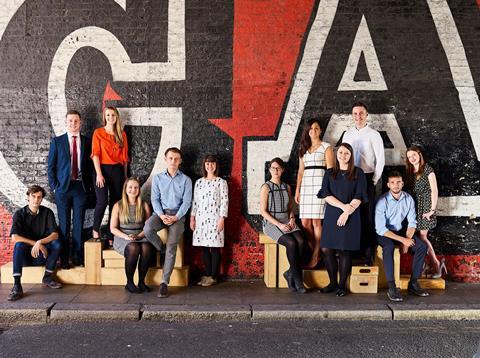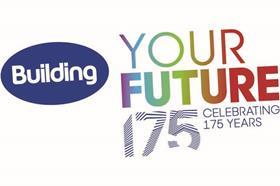When young people do decide to join the sector, we must support them so that they stick around, says Sarah Beth Riley, part of ║├╔½Ž╚╔·TVŌĆÖs graduate panel

I feel strongly that we need to be doing more to get young people excited about joining the construction industry. And to do that successfully, itŌĆÖs so important to tap into them at a young age. When theyŌĆÖre 14, theyŌĆÖre already choosing their GCSE subjects and they may already be conditioned to think that theyŌĆÖre better at some things than others.
We also need to let them know about the breadth of roles that are out there in construction and further afield. IŌĆÖm really excited to be part of the Ladies Bridge schools project, which celebrates the role of women in the construction of Waterloo Bridge in London. WeŌĆÖre taking Year 8 students to see the bridge, and we give them a bit of an introduction to the construction industry ŌĆō IŌĆÖm part of a panel that is going to speak about our experience. ThereŌĆÖs an architect, an engineer, a project manager, a cost consultant ŌĆō a real variety ŌĆō and we give a brief description of what we do and how we got into it, and let the kids know that thereŌĆÖs more out there than engineers and architects and doctors. ThereŌĆÖs lots of things in the construction industry that they could be doing.
We are the generation who are going to bring about these changes
But whatŌĆÖs just as important is that, when these young people do decide to join the sector, we support them so that they stick around. You really canŌĆÖt overestimate how important a role support plays in helping young people develop and progress ŌĆō IŌĆÖve seen this first hand in my experience both as a mentor and a mentee.
I volunteer with Women in Property, which runs an excellent mentoring scheme. My mentee is a recent university graduate whoŌĆÖs just starting to find her feet in the industry. A lot of the things that come up are things that IŌĆÖve recently experienced myself, so even though IŌĆÖm not yet hugely experienced in my field, IŌĆÖm able to help her. For example, talking about how to take on more responsibility at work, how to ask for things when you need them, asking for more pay, giving a bit of guidance about when and what to say.
Peer-to-peer mentoring is such a great opportunity to help people think things through. Sometimes, even just listening to them helps, letting them talk through all of their thoughts, acting as a sounding board.
It doesnŌĆÖt have to be this formal structure, either. I have a friend whoŌĆÖs a planner and we meet once a month and we help each other set some goals, such as who we are going to meet or what we want to do, and I think just fostering that open, sharing conversation is important.
Having these conversations across the industry really changes your mindset about how you work ŌĆō if youŌĆÖre able to take on board suggestions from your peers in different disciplines. We all need to be collaborators and networkers to harness the energy of the group. Architects are prone, like so many dedicated professions, to burn out and we all need a resilient network to keep a perspective on our work and learn from others.
Speaking to some of the other graduates on the panel, that we feel this is our chance to move things on. We are the generation who are going to bring about these changes.
Sarah Beth Riley is an associate at Ash Sakula Architects, and she was speaking to ║├╔½Ž╚╔·TVŌĆÖs Jamie Harris

Our graduate panel
║├╔½Ž╚╔·TV recently brought together a group of 12 fairly recent graduates working across the built environment ŌĆō project managers, site managers, engineers, architects, surveyors and consultants ŌĆō to discuss their hopes, dreams and fears for the sector.
Why did they join an industry with an image problem that puts off many young people? How do they hope to make their mark? And what do they most want to change?
Meet the graduate panel here. To stay updated on our ║├╔½Ž╚╔·TV Your Future campaign, go to building.co.uk/175
Why my generation can do something about mental health - by Dermot Mitchell, Morgan Sindall



























No comments yet